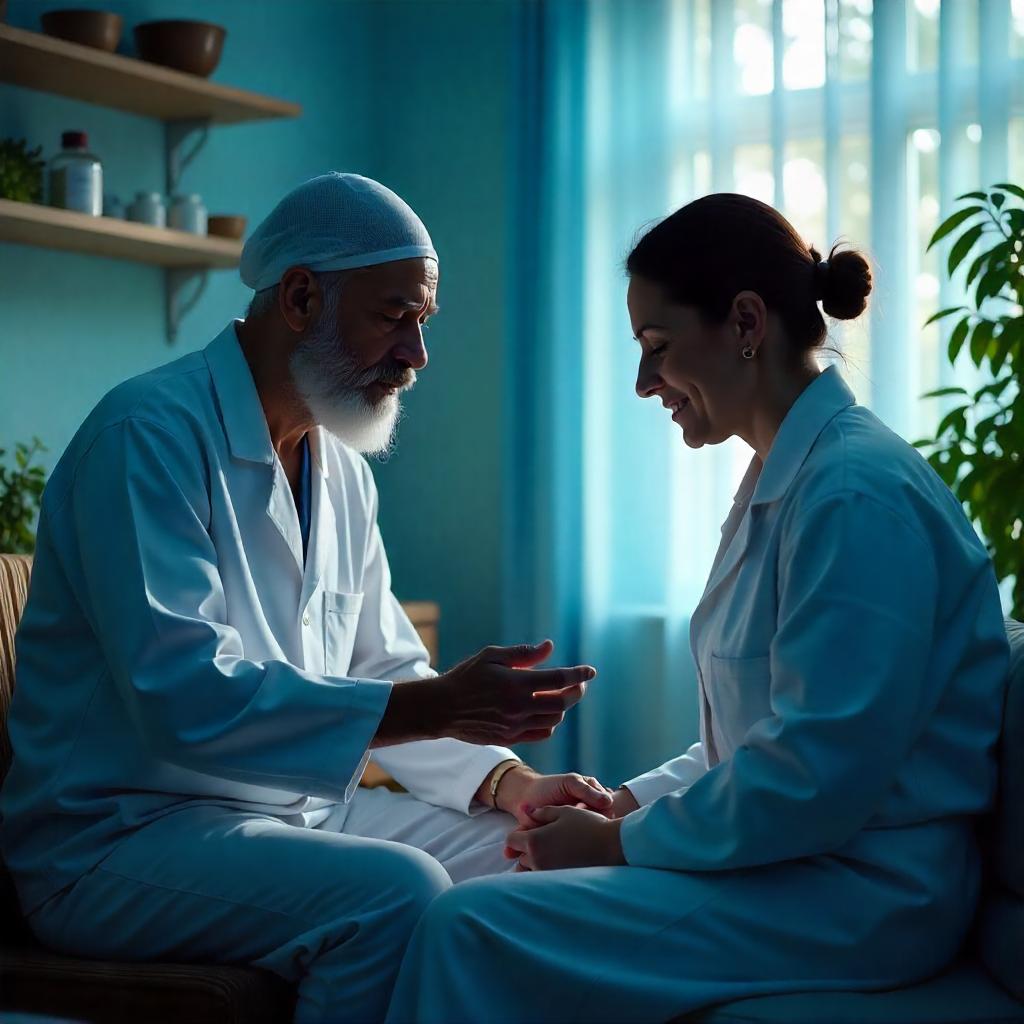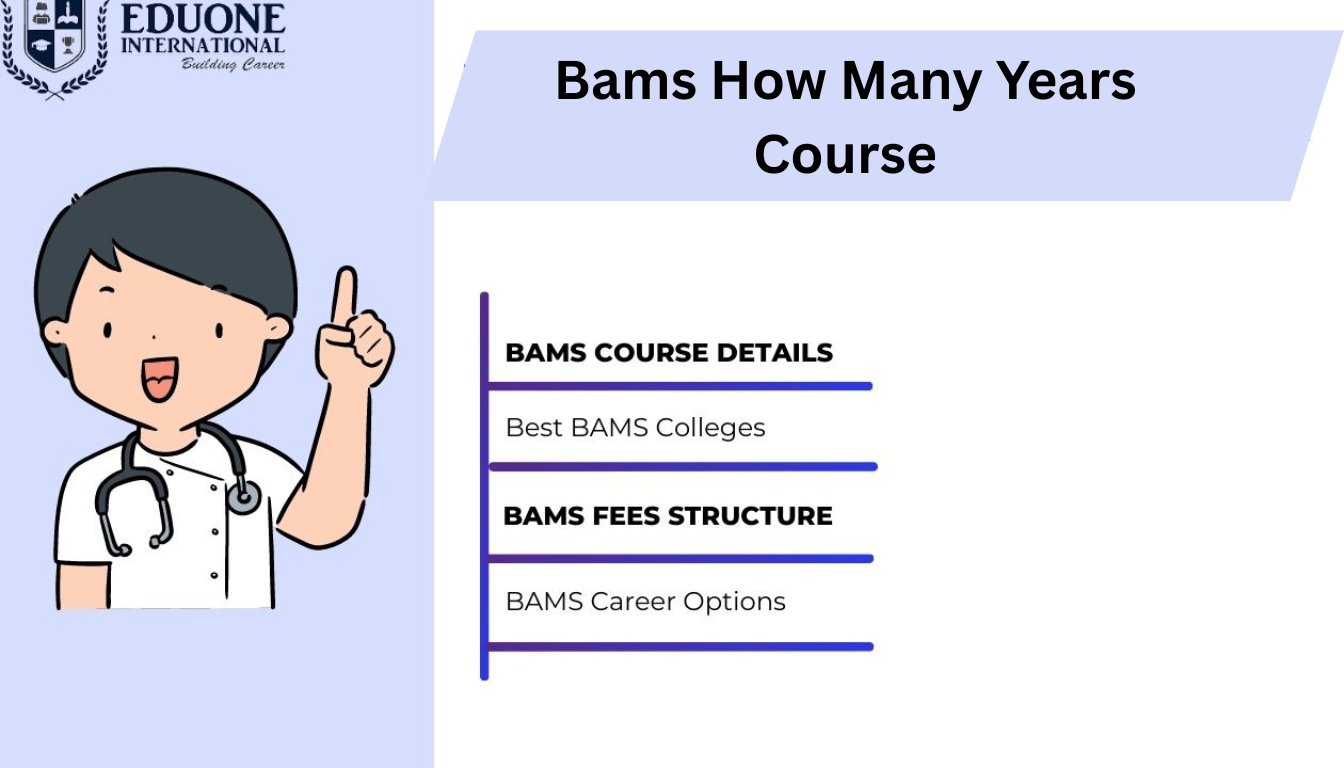Bachelor of Ayurvedic Medicine and Surgery (BAMS) is a highly sought-after medical degree in India, blending the ancient wisdom of Ayurveda with modern medical science. If you’re curious about “bams how many years course” and want to understand its details, fees, eligibility, and scope, this comprehensive guide will provide all the essential information you need, especially tailored for students in India.
What is BAMS? Understanding the Full Form and Course Overview
BAMS stands for Bachelor of Ayurvedic Medicine and Surgery. It is an undergraduate degree program that educates students on Ayurvedic principles, herbal treatments, and holistic healing methods alongside modern anatomy and medical knowledge. The course aims to create skilled Ayurvedic practitioners who can diagnose, treat, and prevent diseases using natural and traditional therapies.
BAMS How Many Years Course? Duration Explained
One of the most common questions is bams how many years course after 12th. The BAMS course duration in India is typically 5.5 years, which includes:
- 4.5 years of academic study covering subjects like Sanskrit, Roga Nidan (diagnosis), Kriya Sharir (physiology), Rasashastra (pharmacology), and more.
- 1 year of mandatory internship, providing practical exposure in Ayurvedic hospitals or clinics.
In Karnataka and most other states, the course duration remains the same, i.e., 5.5 years, including the internship period. This duration is equivalent to the MBBS course, which usually spans 5.5 years as well.
Eligibility Criteria for BAMS Course
To enroll in the BAMS program, candidates must meet the following eligibility requirements:

- Completion of 10+2 (Class 12) from a recognized board in India.
- Mandatory subjects: Physics, Chemistry, Biology, and English.
- Minimum aggregate marks usually range between 50% to 60%, depending on the college.
- Qualifying the NEET (National Eligibility cum Entrance Test) is compulsory for admission in most government and private colleges.
This eligibility ensures that students have a strong foundation in science before diving into Ayurvedic studies.
BAMS Course Fees: Private vs Government Colleges
The bams course fees vary significantly based on the type of institution:
- Government Colleges: The fees are generally affordable, ranging from around INR 20,000 to INR 1,00,000 per year.
- Private Colleges: Fees can be substantially higher, ranging from INR 1,00,000 to INR 42,00,000 for the entire course duration, depending on the college’s reputation, facilities, and location.
For example, in Karnataka, government colleges offer BAMS at lower fees compared to private colleges, where fees might be on the higher side due to better infrastructure and additional amenities.
BAMS Course Details: Subjects and Syllabus
The BAMS curriculum is designed to cover both theoretical and practical aspects of Ayurveda and modern medicine. Some key subjects include:
- Padartha Vigyan: Basic principles of Ayurveda.
- Ayurved Itihas: History of Ayurveda.
- Dravyaguna Vigyan: Study of medicinal plants.
- Roga Nidan: Diagnosis of diseases.
- Kriya Sharir: Physiology.
- Rasashastra: Ayurvedic pharmacology.
- Panchakarma: Detoxification therapies.
The syllabus is spread over 4.5 years of academic study, followed by a 1-year internship to gain hands-on experience in Ayurvedic treatment and patient care.
Career Prospects After BAMS
Graduates of the BAMS course have a wide range of career options, including:
- Ayurvedic Doctor in hospitals and clinics.
- Panchakarma Practitioner specializing in detox therapies.
- Ayurveda Consultant for wellness centers.
- Ayurvedic Pharmacist or Researcher.
- Lecturer or Professor in Ayurvedic colleges.
- Opportunities in pharmaceutical companies focusing on herbal medicines.
- Starting their own Ayurvedic clinic or wellness center.
The average salary for BAMS graduates ranges from INR 2,00,000 to INR 14,00,000 per annum, depending on experience and job profile.
BAMS vs MBBS: How Many Years and Scope Comparison
Both BAMS and MBBS courses typically span around 5.5 years, including internships. While MBBS focuses on allopathic medicine, BAMS specializes in Ayurvedic medicine, which is gaining global recognition as a complementary and alternative healing system.
| Aspect | BAMS | MBBS |
|---|---|---|
| Course Duration | 5.5 years (including internship) | 5.5 years (including internship) |
| Eligibility | 10+2 with PCB + NEET | 10+2 with PCB + NEET |
| Focus | Ayurveda and holistic medicine | Allopathic medicine |
| Career Scope | Ayurvedic practitioner, researcher, consultant | Medical doctor, surgeon, specialist |
| Average Fees | INR 20,000 – 42,00,000 | INR 50,000 – 50,00,000+ |
Both courses offer promising career paths, but the choice depends on your interest in traditional versus modern medicine.
BAMS How Many Years Course in Karnataka?
In Karnataka, the BAMS course duration follows the national standard of 5.5 years, including the internship. Karnataka offers both government and private Ayurvedic colleges, with fees varying accordingly. Admission is based on NEET scores and state counseling processes.

Tips for Choosing the Right BAMS College
- Check if the college is recognized by the Central Council of Indian Medicine (CCIM).
- Compare fees between government and private colleges.
- Review the faculty qualifications and infrastructure.
- Look for internship opportunities and clinical exposure.
- Consider the college’s placement record and alumni network.
Frequently Asked Questions
Can I complete BAMS in 3 years?
No, the BAMS course cannot be completed in 3 years. The standard duration of the BAMS course in India is approximately 5.5 years, which includes 4.5 years of academic study and 1 year of mandatory internship. This duration is fixed to ensure thorough training in both Ayurvedic theory and clinical practice.
Is BAMS doctor equal to MBBS?
BAMS and MBBS are both medical degrees but focus on different systems of medicine. MBBS is a degree in allopathic medicine, while BAMS is a degree in Ayurvedic medicine. Both courses typically last about 5.5 years and involve rigorous training. A BAMS doctor is qualified to practice Ayurveda and is recognized by the government, but they are not the same as an MBBS doctor in terms of medical system and scope of practice.
Can I get 100% job after BAMS?
While no degree can guarantee 100% job placement, BAMS graduates have good career prospects due to the growing demand for Ayurvedic treatments and wellness services. Graduates can work in hospitals, clinics, pharmaceutical companies, research, or start their own practice. Job opportunities are increasing, but success depends on skills, specialization, and networking.
How many years for BAMS after 12th?
The BAMS course duration after completing 12th (with Physics, Chemistry, and Biology) is 5.5 years, which includes 4.5 years of academic study and 1 year of internship. This is the standard duration across India, including states like Karnataka.
What is the full form of BAMS?
BAMS stands for Bachelor of Ayurvedic Medicine and Surgery. It is an undergraduate degree program focusing on Ayurveda, the traditional Indian system of medicine.
What are the eligibility criteria for BAMS course?
To be eligible for BAMS, candidates must have completed 10+2 with Physics, Chemistry, Biology, and English as compulsory subjects. Additionally, qualifying the NEET entrance exam is mandatory for admission to most government and private Ayurvedic colleges.
What is the typical fee structure for BAMS course?
BAMS course fees vary widely. Government colleges usually charge between INR 20,000 to INR 1,00,000 per year, while private colleges can charge from INR 1,00,000 up to INR 42,00,000 for the entire course duration, depending on the institution and location.
What subjects are covered in the BAMS syllabus?
The BAMS syllabus includes subjects like Sanskrit, Roga Nidan (diagnosis), Kriya Sharir (physiology), Rasashastra (pharmacology), Panchakarma (detox therapies), and Charak Samhita (ancient Ayurvedic text), blending traditional Ayurvedic knowledge with modern medical science.
Is BAMS course duration the same in Karnataka as in other states?
Yes, the BAMS course duration in Karnataka is the same as in other Indian states, approximately 5.5 years including the internship period.
What career options are available after completing BAMS?
After BAMS, graduates can become Ayurvedic doctors, Panchakarma specialists, Ayurvedic consultants, researchers, lecturers, or work in pharmaceutical companies. They can also pursue higher studies like MD in Ayurveda or start their own clinics. The scope is expanding with increasing interest in alternative medicine.
Conclusion:
If you are passionate about Ayurveda and want to pursue a career in holistic healthcare, the BAMS course is an excellent option. With a duration of 5.5 years, reasonable fees in government colleges, and a growing demand for Ayurvedic practitioners, BAMS offers a fulfilling and respected medical career.
Ready to embark on your journey to becoming an Ayurvedic doctor? Start preparing for NEET, explore top BAMS colleges in India, and take the first step toward a rewarding career in traditional medicine!
